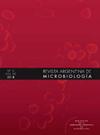Wheat straw amendment to an oily sludge pretreated with ammonium persulfate and its impact on the indigenous mycobiota
IF 2.1
4区 生物学
Q4 MICROBIOLOGY
引用次数: 0
Abstract
Numerous studies have addressed the dynamics of bacterial communities in response to remediation strategies, while fungal communities, despite their potential as bioremediation agents, remain comparatively understudied. The aim of this work was to evaluate the impact of wheat straw amendment (WSA) on an oily sludge untreated and treated with ammonium persulfate on indigenous mycobiota after 60 days. Culture-independent 18S rRNA amplicon sequencing, microbial enzymatic activity and chemical parameters were analyzed. WSA on a preoxidized oily sludge promoted high total petroleum hydrocarbon (TPH) removal after 60 days, exhibiting the highest laccase activity. Fungal diversity and equitability were also recovered until reaching similar index values to those of the untreated microcosms. However, changes in fungal taxonomical groups were detected, with Eurotiales (93.4%) being replaced by Microascales (57.9%) and Sordariales (32.8%) at the end of the treatment. Our results suggest that inputs of easily assimilable organic matter in oily sludge might accelerate changes and replacement of fungal taxa, also affecting microbial colonization and, consequently, pollutant removal. These findings highlight the relevance of incorporating fungal dynamics into bioremediation strategies as a complementary approach to oily sludge treatment.
麦秸改性过硫酸铵预处理含油污泥及其对本地真菌群的影响。
许多研究已经解决了细菌群落在响应修复策略时的动态变化,而真菌群落尽管具有作为生物修复剂的潜力,但研究相对较少。本研究的目的是评价小麦秸秆改良剂(WSA)对未经处理和过硫酸铵处理的含油污泥60天后对本地真菌群的影响。18S rRNA扩增子测序、微生物酶活性和化学参数分析。预处理60天后,WSA对预氧化含油污泥的总石油烃(TPH)去除率较高,漆酶活性最高。真菌多样性和公平性也得到了恢复,直到达到与未处理微生物相似的指数值。然而,真菌分类类群发生了变化,在处理结束时,Eurotiales(93.4%)被Microascales(57.9%)和Sordariales(32.8%)所取代。我们的研究结果表明,含油污泥中易于同化的有机物的输入可能加速真菌分类群的变化和替换,也影响微生物的定植,从而影响污染物的去除。这些发现强调了将真菌动力学纳入生物修复策略作为含油污泥处理的补充方法的相关性。
本文章由计算机程序翻译,如有差异,请以英文原文为准。
求助全文
约1分钟内获得全文
求助全文
来源期刊

Revista Argentina de microbiologia
MICROBIOLOGY-
CiteScore
3.30
自引率
0.00%
发文量
46
审稿时长
>12 weeks
期刊介绍:
La Revista Argentina de Microbiología es una publicación trimestral editada por la Asociación Argentina de Microbiología y destinada a la difusión de trabajos científicos en las distintas áreas de la Microbiología. La Asociación Argentina de Microbiología se reserva los derechos de propiedad y reproducción del material aceptado y publicado.
 求助内容:
求助内容: 应助结果提醒方式:
应助结果提醒方式:


